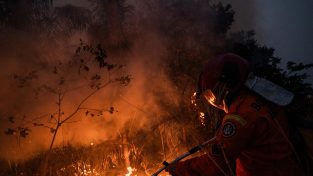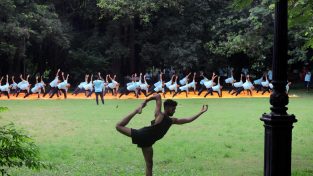India, ricerca di liberazione
L’Agenzia Ap rimanda al grande fenomeno di massa in India che avviene in questo periodo dell’anno. «Milioni di hindu compiono il bagno rituale nelle acque dei fiumi sacri Gange e Yumana. Cercano la purificazione dai peccati e il moksha, l’agognata liberazione dal ciclo delle reincarnazioni. È il più grande raduno di persone al mondo». Riprendiamo un contributo di Città Nuova per cercare di capire il senso di questa festa nel grande Paese indiano. Un invito ad allargare il nostro sguardo sul mondo intero.
Clicca qui per leggere il testo di




















